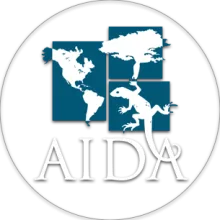The most important global meeting on climate change is nearing, and expectations are high. The United Nations Climate Change Conference (COP20), in Lima December 1-12, is expected to conclude with a draft of a new global agreement on climate change, which will be signed in 2015. The conference also provides a key opportunity to hold nations to the financial commitments they made at prior conferences.
AIDA is attending the conference with two main objectives. First, we will advocate full funding of the Green Climate Fund. Second, we will contribute to the conversation to ensure that the new climate agreement takes into account the impact of climate change on human rights.
The UN Framework Convention on Climate Change established the Green Climate Fund to finance programs and projects for climate change adaptation and mitigation. Countries most vulnerable to climate change will be given investment priority.
“We want specific commitments to be made, with clarity about the road map that develop countries should follow so that their fight against climate change has sustainable financial assistance,” said Andrea Rodriguez, senior attorney at AIDA.
To date, the Green Climate Fund has received $9.6 billion in pledges. At the Lima conference, we aim to generate additional commitments that raise the total to $15 billion. We will also work with governments to ensure that they live up to their commitment to contribute $100 billion a year, starting in 2020, to ensure that resources are predictable and sustainable. AIDA will work with global networks like Climate Action Network International (CAN-I) to monitor financial contributions.
AIDA, together with partner organizations is organizing a Latin America and the Caribbean Climate Finance Day on Saturday the 6th of December. This event will convene stakeholders from various sectors to facilitate dialogue and build capacity on key climate finance issues affecting the region. One of the sessions will address the role of the Green Climate fund in contributing to transformational change in Latin America.
“Leveraging the context of climate talks, we would like to remind the decision makers that methods of mitigating climate change must be truly sustainable and efficient,” Rodriguez stated. “Mitigation efforts should not promote projects like large dams, which have been considered a source of clean energy, despite the fact that they emit large amounts of climate-forcing methane, especially in the tropics.”
The conference will provide an opportunity for AIDA to work with negotiators to ensure that human rights considerations, which were recognized in previous climate agreements, make it into the next agreement.
Alongside COP20, we will participate in the People’s Summit on Climate Change, a major alternative gathering of civil society organizations. In this meeting, AIDA will discuss hydraulic fracturing, or fracking, and its implications for the environment of Latin America and for global climate.
We will be posting updates throughout the conference on our website, Facebook and Twitter. Follow along!!
AIDA Staff

Founded in 1998, AIDA is a nonprofit environmental law organization that works across international borders to defend threatened ecosystems and the human communities that depend on them.
